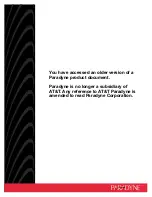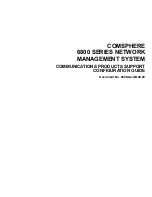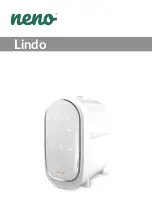
Basic safety instructions
CCS120D
6
Hauser
2
Basic safety instructions
2.1
Requirements for personnel
Installation, commissioning, operation and maintenance of the measuring system may be
carried out only by specially trained technical personnel.
‣
The technical personnel must be authorized by the plant operator to carry out the specified
activities.
‣
The electrical connection may be performed only by an electrical technician.
‣
The technical personnel must have read and understood these Operating Instructions and
must follow the instructions contained therein.
‣
Measuring point faults may be repaired only by authorized and specially trained personnel.
Repairs not described in the Operating Instructions provided must be carried out only
directly at the manufacturer's site or by the service organization.
2.2
Designated use
Drinking water and industrial water must be disinfected through the addition of appropriate
disinfectants such as chlorine gas or inorganic chlorine compounds. The dosing quantity must
be adapted to continuously fluctuating operating conditions. If the concentrations in the water
are too low, this could jeopardize the effectiveness of the disinfection. On the other hand,
concentrations which are too high can lead to signs of corrosion and have an adverse effect on
taste, as well as generating unnecessary costs.
The sensor was specifically developed for this application and is designed for continuous
measurement of total chlorine in water. In conjunction with measuring and control
equipment, it allows optimal control of disinfection.
In this context, the following compounds are referred to collectively as total chlorine:
• Free available chlorine: hypochlorous acid (HOCl), hypochlorite ions (OCl
-
)
• Combined chlorine (chloramines)
• Organic combined chlorine, e. g. cyanuric acid derivatives
Chloride (Cl
-
) is not recorded.
The sensor is not suitable for checking the absence of chlorine.
The sensor is particularly suitable for:
• Monitoring of total chlorine content in wastewater, industrial water, process water, cooling
water and pool water
• Measurement, monitoring and control of total chlorine content in fresh water and seawater
during the treatment of process water, swimming pool water and whirlpool bathwater
A typical application is the disinfection of wastewater, industrial, process and cooling water
with disinfectants containing chlorine, particularly at higher pH values up to 9.5. In swimming
pools, the CCS120D sensor is used in combination with the CCS51D sensor for free available
chlorine to monitor the amount of combined chlorine (chloramines).
Use of the device for any purpose other than that described, poses a threat to the safety of
people and of the entire measuring system and is therefore not permitted.
Summary of Contents for CCS120D
Page 2: ......
Page 39: ...CCS120D Installation and operation in hazardous environment Class I Div 2 Endress Hauser 39 ...
Page 42: ......
Page 43: ......







































